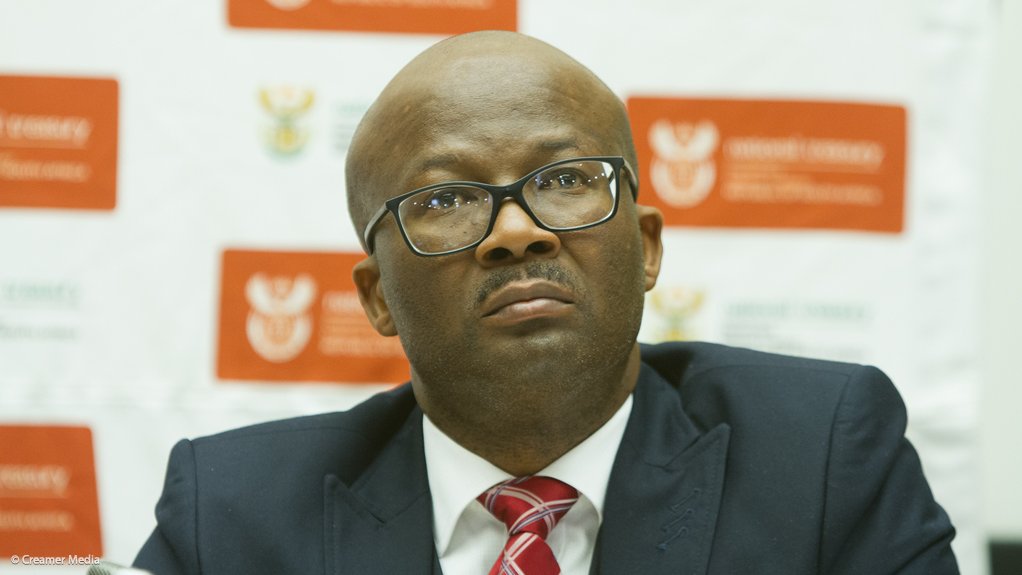National Treasury director-general Dondo Mogajane is warning that major Budget cuts will be required to offset a range of expenditure pressures that have arisen as a result of recent government decisions, including the 2021/22 wage settlement, which would increase the public sector compensation bill by a further R20-billion.
Speaking during a virtual briefing of Parliament’s Standing Committee on Appropriations, Mogajane said that the 1.5% wage settlement would cost R20-billion more than the compensation ceiling outlined in the February Budget.
“Work is ongoing on how to address the wage agreement within the current constrained environment and options or recommendations will be discussed by the Ministers’ Committee on the Budget and Cabinet,” he reported.
The wage settlement was not the only additional spending pressure in the system, however, and Mogajane listed several other large commitments collectively valued at between R100-billion and R105-billion.
His incomplete list included: R3.2-billion to address Denel’s guaranteed debt; R5-billion for the Land Bank; R15-billion-worth of National Student Financial Aid Scheme debt; R4.6-billion for the South African National Roads Agency Limited to compensate for the non-payment of e-tolls to cover its Gauteng Freeway Improvement Programme debt; and another R16-billion to cover provincial accruals.
“The list continues and continues,” he said, revealing that there were billions more in expenditure not included in his list.
“With these spending pressures, and I am not even talking about the spending pressures as a result of the response that we announced [following the riots], we are looking at about R100-billion to R105-billion and we have said that we need to look at reprioritisation here and there.”
Such reprioritisation would involve budget cuts to “take from Peter to pay Paul”.
He acknowledged that departments were complaining about the cuts, but “we are cutting because of the choices that have been made, which require us to make provision for new expenditure pressures when the economy and tax revenues are not growing and when we want to clawback on a debt-to-GDP ratio that is spiralling out of control and a possible huge Budget deficit”.
South Africa would respond to the spending pressures while maintaining a fiscal strategy that aimed to narrow the deficit and stabilise debt “primarily by controlling non-interest expenditure growth”.
The main Budget primary deficit is projected to narrow over the medium term and the gross debt-to-GDP ratio is projected to stabilise at 88.9% in 2025/26.
The debt-to-GDP ratio currently stands at nearly 80%, with the country currently owing R4-trillion and with its debt-servicing cost to rise to R270-billion this year, making it the second-largest Budget item after education.
Departments were, thus, being asked to prioritise their expenditure, while government was moving to accelerate key reforms that could boost growth and tax revenues in the medium- to long-term.
SUPPLY-SIDE REFORMS
Deputy Finance Minister David Masondo said the implementation of high-impact reforms in electricity, freight logistics, digital spectrum, water, skills and tourism were being prioritised in an effort to address supply-side constraints to growth and investment.
The Presidency and the National Treasury were using Operation Vulindlela as a delivery unit approach to accelerate the implementation of these structural reforms.
Some had already been implemented, including the raising of the licence-exemption threshold for private electricity generators to 100 MW and the establishment of the Transnet National Ports Authority as an independently governed entity with its own board.
Masondo said the current shortage of electricity continued to constrain investment by the private sector, while inefficiencies at the countries ports were raising the cost of doing business.
Speaking on behalf of Operation Vulindlela, Dr Sean Phillips described the recent amendment to Schedule 2 of the Electricity Regulation Act as providing the basis for major private investment in electricity generation in the absence of any government guarantees.
“It is the quickest way of getting additional electricity into the system because you don’t have to go through a public procurement process, because the private sector will be investing in the generation capacity.
“It’s estimated that this could result in an additional 5 000 MW of electricity coming into the system over the next couple of years and an additional R60- to R70-billion-worth of investment by the private sector into electricity generation,” Phillips said.
EMAIL THIS ARTICLE SAVE THIS ARTICLE ARTICLE ENQUIRY
To subscribe email subscriptions@creamermedia.co.za or click here
To advertise email advertising@creamermedia.co.za or click here











